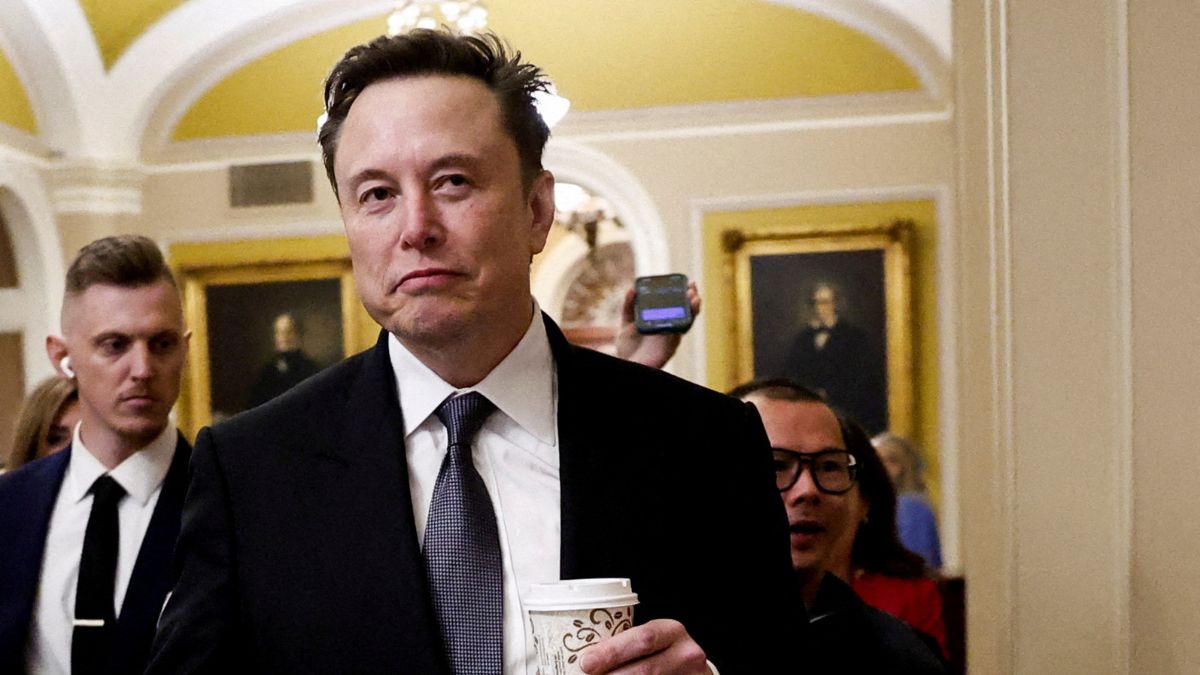Elon Musk, the US-based billionaire tech entrepreneur and CEO of Tesla, has turned heads all the way in Germany with his endorsement of the far-right Alternative for Germany (AfD) party.
His support, expressed in a guest opinion piece for the German newspaper Welt am Sonntag, has drawn sharp criticism from German politicians and sparked controversy in media circles.
With Germany set to hold snap elections on February 23 following the collapse of Chancellor Olaf Scholz’s coalition government, Musk’s involvement has raised questions about foreign influence in the European country’s democratic processes.
Why is Elon Musk backing the AfD?
Musk’s endorsement of the AfD stems from his belief that the party’s policies align with his vision for economic reform and technological advancement. In his guest commentary published in German, Musk declared, “Only the AfD can save Germany,” and defended the party against accusations of extremism.
He stated the AfD’s commitment to economic deregulation, tax reforms, and preserving Germany’s cultural identity. “The portrayal of the AfD as right-wing extremist is clearly false, considering that Alice Weidel, the party’s leader, has a same-sex partner from Sri Lanka! Does that sound like Hitler to you? Please!” Musk wrote.
Musk criticised Germany’s phase-out of nuclear power, describing it as a strategic mistake that left the country vulnerable to energy shortages. He argued that Germany’s regulatory environment stifles innovation and economic growth.
“Germany has become too comfortable with mediocrity,” Musk wrote, suggesting that the AfD’s approach could reverse these trends and restore the country’s global competitiveness.
In addition to economic concerns, Musk highlighted the AfD’s stance on cultural preservation. He warned against what he sees as the erosion of national identity due to globalisation and open borders.
“A nation must preserve its basic values and cultural legacy to remain strong and unified,” he stated, underscoring his support for the AfD’s policies on immigration and cultural integrity.
How have politicians in Germany reacted?
Musk’s commentary has provoked strong reactions from across Germany’s political spectrum. Friedrich Merz, leader of the opposition Christian Democratic Union (CDU) and a frontrunner to succeed Scholz as chancellor, described Musk’s intervention as “intrusive and presumptuous.”
Speaking to the Funke Media Group, Merz stated, “I cannot recall a comparable case of interference, in the history of Western democracies, in the election campaign of a friendly country.”
Saskia Esken, co-leader of Scholz’s Social Democratic Party (SPD), vowed to resist attempts by wealthy and influential figures to influence German elections. “Anyone who supports an anti-democratic, misanthropic party like the AfD must expect our tough resistance,” she said in an interview with ARD, Germany’s national public broadcaster.
The controversy also spilled into media circles. Eva Marie Kogel, the editor of Welt am Sonntag’s opinion section, resigned in protest after the piece was published.
In contrast, the paper’s editor-in-chief designate, Jan Philipp Burgard, defended the decision, stating the importance of free expression in journalism. “Democracy and journalism thrive on freedom of expression. This includes dealing with polarising positions and classifying them journalistically including polarising positions," Burgard told Reuters.
Why may Musk be interested in Germany?
Musk’s significant investments in Germany provide additional context for his endorsement. Tesla’s Gigafactory in Brandenburg represents a major economic commitment, and Musk has frequently criticised bureaucratic hurdles that delayed its development.
He cited his business interests as justification for his commentary on German politics, arguing that he has a stake in the country’s success.
However, Musk’s critics question whether his business motivations align with the welfare of Germany’s democracy. Some have suggested that his focus on deregulation and tax reforms prioritises corporate interests over broader societal concerns.
Musk’s commentary reflects his broader critique of European economic policies, which he sees as overly restrictive and counterproductive to innovation.
Is Musk trying to influence German politics?
The AfD has long been a controversial force in German politics. It has been classified as a suspected case of extremism by Germany’s domestic intelligence agency since 2021. Despite its growing support in opinion polls, mainstream parties have pledged to avoid coalition agreements with the AfD, citing its far-right tendencies and associations with extremist groups.
Musk’s endorsement of the AfD has reignited debates about the boundaries of free speech and the role of influential figures in democratic processes. While some argue that Musk’s intervention is a legitimate exercise of his right to free expression, others view it as an inappropriate attempt to shape a foreign country’s political landscape.
Critics warn that endorsements from high-profile figures like Musk could undermine public trust in democratic institutions, especially when such endorsements align with polarising or extremist parties.
The AfD’s rise in the polls reflects growing dissatisfaction among some Germans with the country’s political status quo.
With inputs from agencies
)